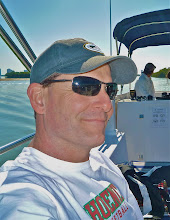Goin' To Da U.P. Hey!

Deciding "Weather" or Not to Move?
It's always freaked me a bit when I hear about the disastrous weather that seems to be occurring with increased frequency around the country. It has seemed, though, that despite record snowfall on occasion, Wisconsin has been spared the horribly debilitating kind of weather that has been afflicting others: wildfires, tornadoes, scorching heat and, of course, flooding and hurricanes.
I'd always heard that with the advent of global warming, the weather extremes would be more, well, extreme, and focus mainly on the middle sections of countries. Now, it would appear that there is some definitive evidence that certain places around the country ARE safer from billion-dollar losses caused by weather.
A report just released by the National climatic Data Center, the authors of the map atop this page, indicates that there are definitely some danger areas as far as catastrophic weather, but there are also some parts of the country where one might sleep a little better knowing that chances of a disaster are slim.
States were categorized by the number of billion-dollar natural disasters that occurred over a 30-year period. For the record, the last year counted was 2009. As a result of the study, it would appear that Hawaii and Alaska might be the safest places to live as far as horrible natural disasters are concerned! Each noted between one and three such disasters since 1980...somewhat surprising since volcanoes and a gazillion-below-zero weather mark these places as possible disaster areas, as far as I'm concerned.
Anyway, it is obvious that the South, the Southeast and parts of the Northeast were definite areas to avoid: Texas, Missouri, Alabama, Georgia, Tennessee, and South Carolina being especially prone to expensive natural disasters (averaging roughly one billion-dollar loss every year for 30 years), while the upper Midwest (Michigan)and isolated Eastern states like Maine and Vermont experienced fewer disasters (4-6 events over the last 30 years)...though Vermont will definitely rise in the ranks for the next poll!
Why some and not others? Apparently, the amount of damage depends on two factors:
1. Without a "dynamic environment " to support severe weather, there are fewer incidents.
2. In the safest places, there is, apparently, less to damage; therefore, there is less loss and less expense.
What does that mean for me? Well, Wisconsin is in the 7-9 events category: safe, but not as safe as the Upper Peninsula of Michigan.
Maybe it's time to move, hey?


0 Comments:
Post a Comment
<< Home